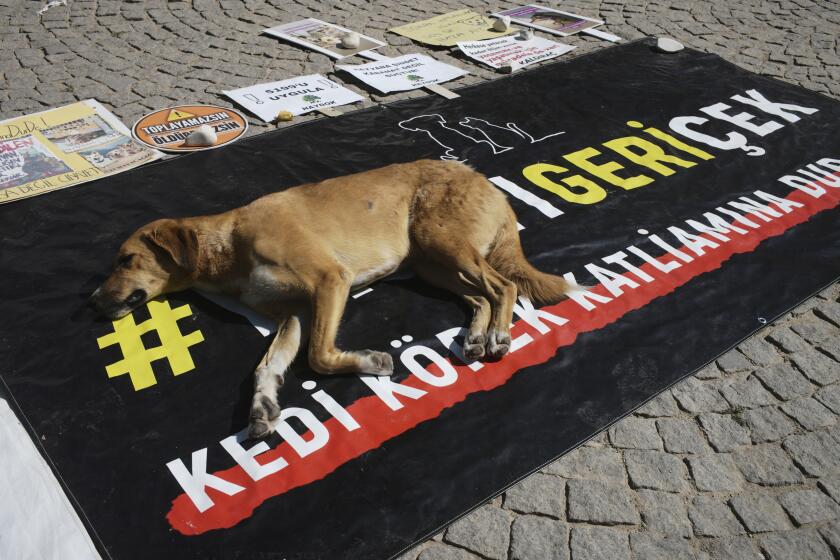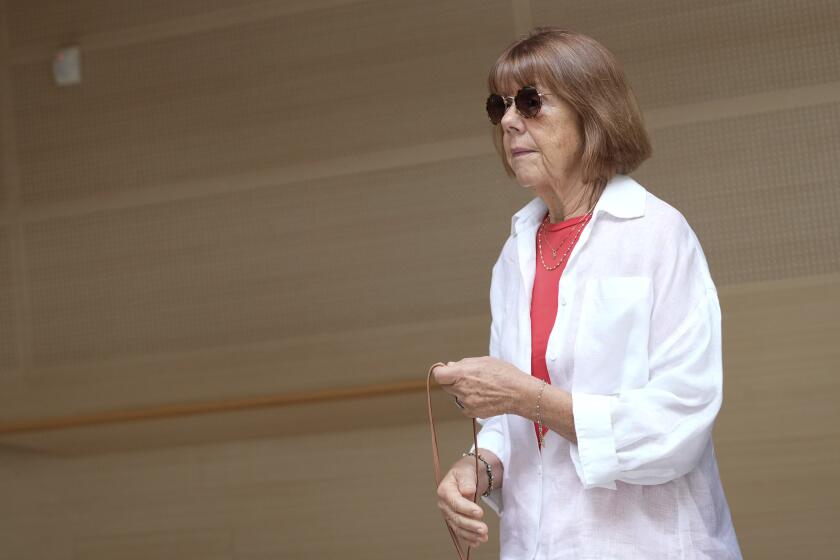Jordanian parliamentary vote will be unfair, critics contend
The vividly colored election posters draped on streetlights signal election season in Jordan.
“Yes to duty-free and tax-free food and pharmaceuticals,” says the poster of one candidate running in Tuesday’s parliamentary elections.
“Supporting sport clubs is a national duty,” says an ad for another.
But to critics and many observers, vibrant campaign banners conceal a dismal reality: The parliamentary contest will be a questionable exercise in democracy.
“It’s sad,” Labib Kamhawi, a Jordanian political analyst, said this month. “A lot of people don’t register to vote because they feel deep inside it’s a waste of time.”
More than 900 candidates, about 200 of them women, are running for seats in the 110-seat Chamber of Deputies, which has the authority to propose laws.
On Thursday, King Abdullah II said he “was keen on having free and fair elections that would enable citizens to exercise their constitutional right in selecting those most capable of representing and serving them,” according to the website of the Jordanian Foreign Ministry.
“These elections should reflect our vision to bolster democracy and produce a parliament capable of dealing with all challenges in the forthcoming stage,” he said, according to a statement distributed by his royal court.
Critics say the government put in place restrictions to guarantee an outcome favorable to the king and his supporters.
The country’s July elections for municipal government councils provided what critics say was a blueprint for an election with just enough of the ornaments of democracy to satisfy Jordan’s Western allies, but enough substantive roadblocks to prevent forces opposed to the monarchy from gaining power.
Jordan’s electoral districts are mapped to give pro-government tribal areas in the countryside a far greater proportion of seats than those in urban enclaves such as Amman and Zarqa, where both Islamic and secular government opposition candidates draw support.
During the municipal elections, critics contend that the committee in charge of registering candidates was stacked with government loyalists who discriminated against opposition candidates.
“If you’re not sanctioned by intelligence, you’re not allowed to run,” Kamhawi said. “The election laws have been manipulated so that the government loyalists always have a comfortable majority.”
Authorities also dropped voters of questionable political sympathies from registration lists, critics said.
Once the polls opened, critics accused the government of flooding voting centers with soldiers who were ordered to cast ballots for pro-government candidates. Their presence may also have intimidated would-be opposition supporters from entering election sites.
Decrying what they labeled widespread fraud, the country’s main opposition party, the Islamic Action Front, staged a last-minute boycott of the municipal elections.
Three other parties withdrew as well.
“What took place here you can’t call elections,” Zaki Bani Arshid, of the Islamic party, said in a recent interview. “They had already decided the results. What took place, we call a mockery.”
The government accused the party of sour grapes, but it dragged its feet on allowing independent monitors into polling sites Tuesday, finally buckling to international pressure and agreeing to a deal with observers.
The Islamic Action Front is rooted in Egypt’s Muslim Brotherhood, the Islamist movement that also spawned Hamas, which controls the Gaza Strip.
The front will field 22 candidates in Tuesday’s balloting. It currently holds 17 seats in parliament.
Like loyalists to Hosni Mubarak in Egypt and Pervez Musharraf in Pakistan, Jordanian leaders argue that radical Islamists like those in Gaza would win free and open elections and immediately impose extreme anti-Western agendas.
But Kamhawi said he didn’t think the Islamists would gain more than 25% of the votes in a fair contest. And in any case the Council of Deputies must contend with a 55-seat Senate, appointed by the king, who ultimately rules the country.
“You’re not talking about controlling the king,” he said, “only the government.”
--
Times staff writer Daragahi was recently on assignment in Amman.
More to Read
Sign up for Essential California
The most important California stories and recommendations in your inbox every morning.
You may occasionally receive promotional content from the Los Angeles Times.










